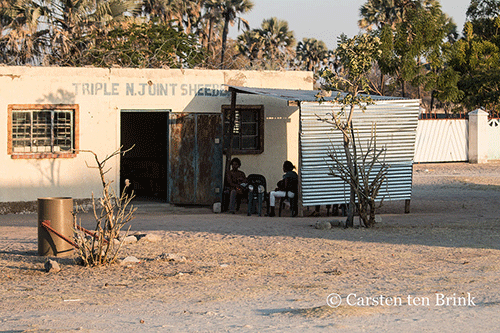Namibian sin taxes were increased earlier this year and resulted in an increased concern about greater public health interventions. In this regard, the Southern African Alcohol Policy Alliance (SAAPA) has emphasised that it is not against alcohol trading but rather endeavours to promote public health.
SAAPA Namibia’s Country Liaison Officer, Irene Kauzuu, has reiterated that the increase in beverages and tobacco taxes should be a good boost to the country’s economy could contribute to poverty eradication efforts and is fundamentally a public health control and prevention strategy for alcohol harm’s reduction as well as availability.
Kauzuu stated that alcohol intake has always been a public health issue in Namibia that has caused different harms such as crimes, gender-based violence, road traffic accidents, teenage pregnancies, homelessness, domestic and child neglect, abuse, disability incidents, and severity in HIV and Covid-19 transmission.
“The increased price tag on beverages and tobacco must push some individuals to quit alcohol, tobacco and substance abuse, reduction in binge drinking and rather divert money to savings, buying essential household commodities, prioritising paying household bills and could also drive some individuals to abstain from alcohol. Regarding private alcohol traders, illegal shebeen owners and traditional homebrewers possibly would be emboldened in diverting their commercial opportunities into selling other products, than availing alcohol and drugs to those already vulnerable,” said Kauzuu.
She added that SAAPA wants to elucidate that its aim is not to shut down shebeens and alcohol outlets as this is a misconception. Kauzuu explained that mass employment is contained in beverages industries, bars, shebeens, clubs, and even so most livelihoods depend on private alcohol sales. However, alcohol is undoubtedly a massive contributing factor to community harm and crimes.
Said Kauzuu: “SAAPA is a network that aims to promote the harmonisation and acceleration of evidence-based alcohol policy development and implementation in the country and the main mission is to work in collaboration with the government, to promote health, well-being, evidence-based policy regulation for all Namibians and promoting these alcohol policy changes as advocated by the World Health Organisation (WHO) and is fundamental towards shifting the binge drinking culture amongst drinkers and prevention of alcohol dependents, reduce the cost of alcohol-attributable harm to society and protecting the well-being of all citizens in Namibia.”
She concluded that government needs a strong working relationship with SAAPA, local communities, stakeholders and civil society organisations to accelerate a strong support system to enforce a national alcohol policy that can reduce alcohol and substance, reduce the mushrooming of illegal shebeens, control binge drinking, reduce the density of alcohol outlets that appear to be associated with a greater rate of crimes, child abuse, GBV and disability incidents. This, she said, would significantly improve Namibia’s public health.


